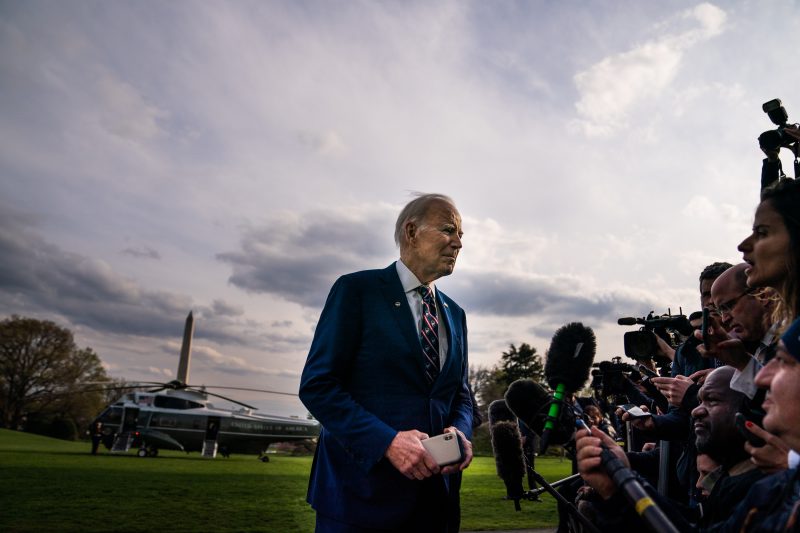Days after President Biden formally ended the coronavirus national emergency, the White House has instructed federal agencies to return more employees to the office and increase “meaningful” in-person work.
In a memo released Thursday, the Office of Management and Budget called on government leaders to “substantially increase meaningful in-person work at Federal offices, particularly at headquarters and equivalents” while continuing to allow telework when it does not hurt the agency’s mission and helps with recruitment and retention.
The guidance comes as the administration’s teleworking policies have faced heavy criticism from Republicans on Capitol Hill and as D.C. Mayor Muriel E. Bowser (D) has urged the president to return federal workers to the office or let the city use the government’s half-empty buildings for other purposes.
But federal unions have pressed to keep teleworking guarantees because most D.C. workers with remote access prefer to continue working from home, The Washington Post has reported.
At the core of the new directive is a commitment “to improve customer experience and services — whether in-person, via phone, or online — so that the American people can easily and efficiently access critical Government services,” Jason Miller, the budget office’s deputy director for management, wrote in a blog post accompanying the 19-page memo from OMB Director Shalanda Young.
If telework policies “negatively impact results, [agencies] must be held accountable and work to make responsible changes, improve their operations, and tackle challenges wherever they arise,” he added.
The new directive was quickly criticized by some Republicans, who said it lacked the teeth to force workers back into the office.
“OMB managed to issue a 19-page memo that shed virtually no light on when federal employees are returning to their offices — or under what conditions continued elevated levels of telework may be warranted,” Rep. James Comer (R-Ky.) said in a statement. Comer is chairman of the House Oversight and Accountability Committee.
Comer, whose office met with the OMB on Friday to discuss the new directive, added, “Based on today’s briefing with OMB, ‘don’t ask, don’t tell’ is the best way to characterize the Biden Administration’s telework policy.”
Some federal unions, meanwhile, expressed alarm that the new requirement could reduce flexibility for federal workers.
“One of the silver linings of the pandemic was learning that in the federal government we could be more flexible and still get the job done in federal agencies,” said Randy L. Erwin, president of the National Federation of Federal Employees, which represents employees at the Departments of Defense, Agriculture and Veterans Affairs, and 31 other agencies.
Erwin added, “With this memo, I fear federal agencies will scale back telework in a knee jerk reaction, even if it is not justified or supported by actual performance measures.”
Following the private sector, the federal government had gradually increased telework options for its employees before the pandemic. But the public health crisis led to an exodus from the office for more than half the workforce, as those in many essential jobs continued to serve the public in-person.
Last year’s annual workplace survey found fewer than a third of employees back in the office full-time, with about 55 percent working hybrid schedules divided between the office and their home. Another 14 percent were working fully remotely.
It’s unclear if the government has measured productivity from its teleworking staffs, but this week’s directive hints that the effort is now a priority.
GOP lawmakers have blamed telework for customer service problems at multiple agencies. Disabled people and retirees continue to wait in long lines at Social Security offices, taxpayers wait on hold to reach Internal Revenue Service agents, veterans face benefits backlogs at Veterans Affairs, and retiring federal workers face delays in getting the Office of Personnel Management on the phone to process their benefits.
In February, the GOP-led House passed a bill sponsored by Comer requiring agencies to bring back to the office teleworking federal employees who were working in-person before the pandemic. The Senate has not taken up the legislation.
Thursday’s White House directive was the first in a year to address post-pandemic rules for the government. But it leaves agencies with wiggle room to continue letting their staffs work from home.
The memo leaves it up to agencies to decide how many employees must come into the office and how frequently. While the goal is to improve service to the public, agency leaders have multiple options to determine the effectiveness of their current work arrangements, using metrics that include attrition rates, service delivery, and “overall workplace culture and environment.”
Since the pandemic started, unions representing federal workers have made telework a key demand during collective bargaining. While some agencies, including the Environmental Protection Agency, the National Archives and Records Administration, and the National Science Foundation, have agreed to telework provisions in recent contracts, many larger agencies, including the Social Security Administration, have resisted.
The White House directive does not override those agreements. But some unions nonetheless said they were concerned by the focus on reducing teleworking.
“This guidance seems to assume that agencies will determine they should increase in-person work before agencies have reported on the effectiveness of their current operational policies,” said Tony Reardon, president of the National Treasury Employees Union, which represents the IRS workforce and other employees. “The federal government should first assess productivity and then adjust as needed.”
At Social Security, where customer service has plummeted amid staff turnover, labor shortages, phone issues and other agency struggles, almost half of field office employees are continuing to work from home. Social Security officials have cited budget shortfalls for their declining performance, but advocates for the disabled and some lawmakers blame generous telework policies.
Social Security was one of multiple agencies that declined Friday to answer questions about how broadly they plan to enforce the new return-to-office policy.








